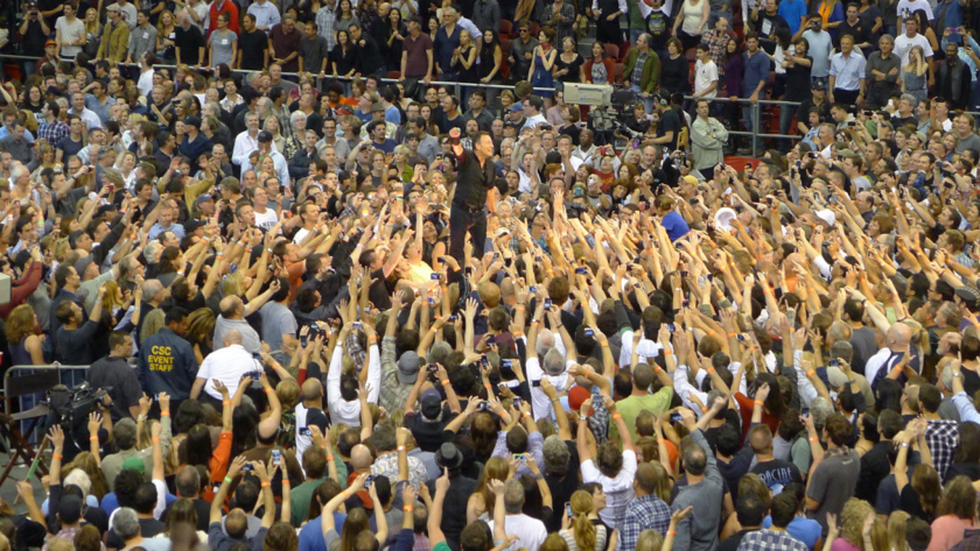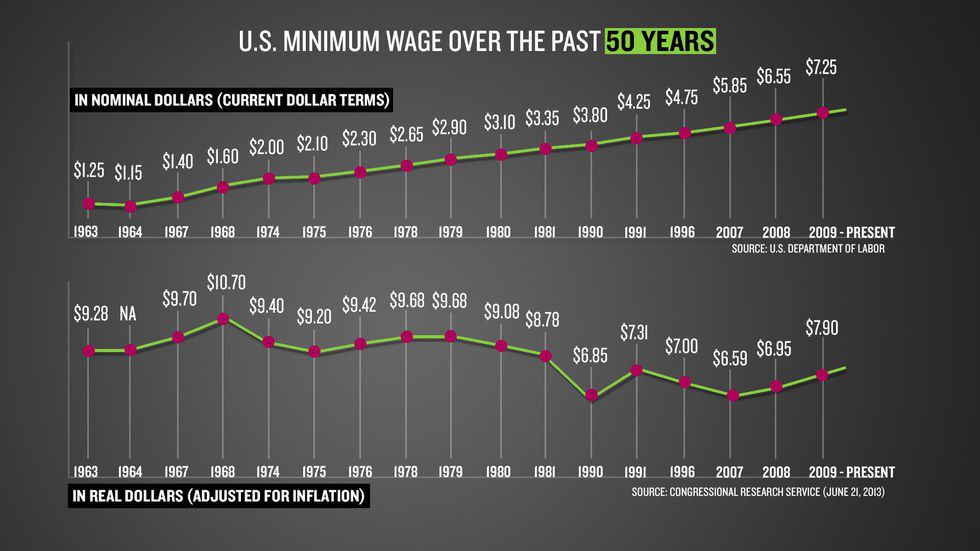There are several celebrities that I can just feel frustration for. They’re perseverance just never seems to be rewarded by the public. Hillary Clinton works her ass off to be the most qualified presidential candidate and loses to the least qualified presidential candidate. Joanna Newsom puts her heart and soul into writing and arranging dense instrumentation for two hour albums but get upstaged by millionaire pop stars who are praised for simply singing music that is written and produced by a studio.
Then there’s Bo Burnham. Despite being the most original, most insightful comedian by far of this generation, his name is often put under the rug in favor of the millennial-bait, buddy-cop-movie-with-Dwayne Johnson Kevin Hart and just-scream-into-the-microphone hack that is Dane Cook. What seems more tragic, though, something that Joanna Newsom doesn’t have to worry about, is Burnham’s fan base. Somehow, his style seems to mostly attract young teenage fangirls who are infatuated with “I’m Bo Yo” (I’m “Bo Yo” to Burnham is like “Creep” to Radiohead, an early, accessible song that both artists have move way past that are also their most popular by far.)
This is something I didn’t totally realize going into listening and watching the music video to Burnham’s “Repeat Stuff”, a scathing condemning of manufactured pop songs from caricatures like Justin Bieber, One Direction, and Usher. I loved the song so much at first. It was one of those things that you always had half-developed as a thought in the back of your head but hadn’t been fleshed out completely until you hear it in art. I saw it as a call-out against Bieber, but what I didn’t learn until later is that it was also a sort of call out against his fans, the same ones that were mythicizing Burnham as they were Bieber. “You don’t love me,” Burnham said in his special, What. “You love the idea of me.”
And it seems so frustrating that Burnham, who doesn’t have that much of a fan base to begin with, has a fan base that is misconstruing his message. A more self-conscious person like me would even second-guess my art, if it was actually providing a message that would warrant a response like this. But what I think is even more tragic, something that, ultimately (like all things), has to do with mortality, is if one’s fan base changes over time, whether the individuals themselves or the the collective, to consist of ideals the artist themself might not agree with, and I can’t think of a better example of that than Bruce Springsteen.
Of course, Springsteen’s message has been, one way or another, misinterpreted for his whole career. “Born In The U.S.A.” was infamously misinterpreted by then-president Ronald Reagan as an ode to the country in favor of its actual meaning: a criticism of the treatment of veterans by the government after the Vietnam War.
But, still, not all of Bruce’s songs were like this. They were mostly about the working man and the struggles of the working class, a class that the Democratic party was very receptive to at the time, and vice versa. Starting with the Progressive Era and being carried out by Democratic presidents like Woodrow Wilson, Franklin D. Roosevelt, and Lyndon B. Johnson, the democratic party focused on labor rights and raising the minimum wage. The democratic party was tough with outspoken presidents that had charisma, while the Republican party was soft, representing a nice, calm, “silent” majority, so it was the perfect opportunity for Bruce to come out with this outspoken, charismatic music that fought for workers.
However, Republicans received a great deal of push-back after Reagan, and, after an elected George W. Bush, Democrats were fearing 16 years of Republican administration, and Bill Clinton comes in. Clinton has the charisma that past Democrats have, a similarity to Kennedy, among others. However, his platform was more centrist, a platform that could only survive at that time. After being elected, he passed NAFTA, a trade agreement that sent millions of American jobs overseas. Meanwhile, even under Democratic administrations, the minimum wage could not be waged any more than its ratio.
The Obama administration happens, and there’s a certain distrust among the white male voter, even though the President’s decision to bail out the auto industry did waves for the working class. Even so, little more was done in a country with heavy wealth disparity, and it isn’t to be overlooked that he also bailed out Wall Street, an institution that used greed to lead themselves in the situation, leaving the taxpayer getting his or her money taken.
It was with the nomination of Hillary Clinton in 2016 that cemented the Democratic Party as different from what it used to be. It was less the Democratic party of the ’40s, one that focused on the working man, in favor of the Democratic party of the ‘1890s, one that focused on big businesses, via Super PACs. Because of this, the white voter, even the Italian voter has statistically gone more and more toward Republicans over these years, and the nomination of Donald Trump, an outspoken individual calling for labor rights (even if he’ll actually follow through) symbolizes that maybe the working man is now going more Republican.
And now we see Springsteen, in his sixties, still performing (and performing energetically), but to, mostly, older white males that are statistically more conservative, even though Springsteen is not only a Democrat but has been outspoken about his Democratic views in his songs. Interestingly enough, there seems to be an interesting inversion happening. As Springsteen’s fan base becomes more and more conservative, his music becomes more and more political. Songs like “We Take Care of Our Own”, “41 Shots (American Skin)”, and the entire album The Rising take leftist slants on topical issues, but it seems to not alienate his conservative fan base. A theory I have on this is that they simply prefer his older stuff, which isn’t surprising because the word “conservative” literally signifies priority on the past. It just seems like putting age on an artist can make them more attractive to a conservative listener, even if the artist has a leftist/druggy slant (i.e. The Beatles, Simon and Garfunkel.)
Probably the face of conservative Springsteen fans is New Jersey Governor Chris Christie, someone who has, time and time again, called Springsteen his hero. “There is some of his work that is dour and down” Christie acknowledged in The Atlantic, “but the thing that attracted me to his music is how aspirational it is–aspirational to success, to fun, to being a better person, to figuring out how to make your life better–and you can’t say that about most people’s music. What’s funny is that his progression is what Republicans believe can happen .That’s what Republicans believe–hard work, talent, ambition. We all know he’s the hardest working man in show business. It’s a meritocracy.”
Despite being such an outspoken, prominent figure, Springsteen hasn’t necessarily been best buddies with Christie. Maybe the opposite. Following the “Bridgegate” scandal, Springsteen performed a version of “Born To Run” with Jimmy Fallon called “Governor Christie Traffic Jam.”
So, according to the quote, Christie is saying some pretty sensible stuff, some stuff many conservatives agree with, and, yes, Springsteen protested an issue rather than an ideology, but if he is criticizing one of his most prominent fans, does he not like the fans Christie represents as well? Springsteen supported Hillary Clinton for this past election; he even performed in benefit of her. Clearly, he still believes in the Democratic party, even if his fans don’t. So when he performs, who is he performing for?
As an artist, I would be horrified to lose my audience on an issue I really cared about, even if I still technically “have” the audience. Does he sympathize with the thought process of his conservative fan base, even if their end-goal political ideologies don’t necessarily add up? Or maybe he thinks Christie is an anomaly, and he still feels connected to his audience. But what if he doesn’t? It isn’t heartbreaking to not have a specific demographic as an audience. Joanna Newsom probably knows there are some upsides to not being mainstream. But what if your audience consists of those avoidable demographics like Bo, or, more like Bruce, what if your audience changes into it?
There’s really nothing more Bruce can do. As mentioned before, he’s done a lot of political music in the recent past. Maybe it’s reactionary to his changing fan base, not trying to pigeonhole himself like so many artists have tried in the past.
Then there’s another theory, that Bruce is simply performing for himself. Maybe it’s why he’s noticeably had more fun on stage in his recent shows. Ask an artist about their audience, and four times out of five, they’ll say I write for myself first. Then there’s the Bo Burnham quote “If you can learn to perform without an audience, you should do it.”
But I’ll end on a high note. I think about his lyrics, the music. Christie is right; it is aspirational. Bruce is all about hope, and he won’t lose that no matter what. Even when he’s at his most negative on Jimmy Fallon, he still has a smile on his face. And even if his fan base is conservative, it’s not like he sings specifically about politics. He sings about love, something that everyone can connect with. Christie said in his interview. “If Bruce and I sat down and talked, he would reluctantly come to the conclusion that we disagree on a lot less than he thinks,” and, for once, I think he’s right.






















